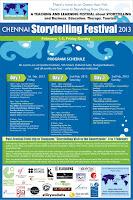
CONVOCATORIA 2019
El Foro de
Narración Oral del Gran Teatro de La Habana Alicia Alonso y el Proyecto NarrArte convocan
a la décima edición del
Festival Primavera de Cuentos en La
Habana, Cuba, del 17 al 23 de marzo, con los auspicios
del Centro de Teatro, del Gran Teatro de La Habana
Alicia Alonso, del Consejo
de las Artes Escénicas y de
otras prestigiosas instituciones y entidades culturales de la Capital. Una vez más, Primavera
de Cuentos reunirá a importantes
narradores orales cubanos y del mundo para festejar el 20 de marzo, Día Internacional de la Narración Oral.
Primavera de Cuentos es un festival sin fines de lucro, que promueve como línea artística principal la participación de narradores que
privilegian en sus presentaciones los recursos expresivos propios de este
oficio milenario: la palabra,
la voz y los gestos, en una fuerte
apelación al imaginario y en intensa
relación con el público, esencia del arte de la palabra viva.
La
participación de los narradores extranjeros está planteada en términos de INTERCAMBIO CULTURAL y cada narrador asumirá
sus gastos de pasaje internacional y estancia, ya que no contamos con
presupuesto para esos fines. A quienes
lo soliciten, podemos enviarles una invitación oficial para gestionar subvención económica con instituciones de
su país.
La
programación artística estará
dirigida a todos los públicos y mantiene su estructura
habitual con espectáculos unipersonales y contadas colectivas o de grupos. Quienes deseen
contar con niños, deberán especificarlo en su planilla de inscripción. La programación central para
jóvenes y adultos será en horarios de la tarde-noche, y están previstas
contadas en otros espacios colaterales y en otros horarios.
Para los narradores extranjeros la
duración máxima de los espectáculos unipersonales será de 30 minutos, pero
serán aceptadas propuestas de 15 y 20 minutos. Para los espectáculos de grupo
regirá también el tiempo límite máximo antes mencionado. Recomendamos que quienes
vengan con otros integrantes de su grupo, conformen una contada grupal. Aquellos narradores que hayan asistido varias
veces en ocasiones recientes con espectáculos unipersonales, serán programados
en contadas colectivas, para favorecer la fluidez de la programación y dejar
margen a quienes vienen por primera vez.
En su gran
mayoría, los narradores cubanos estarán programados en contadas colectivas y
los tiempos serán similares a los asignados a los narradores extranjeros,
detallados en el párrafo anterior. En
algunos casos, por la trascendencia de sus propuestas, podrán presentar
fragmentos de espectáculos unipersonales o de grupos, con una duración máxima
entre 20 y 30 minutos.
Dada la extraordinaria acogida que
ha tenido el concurso Contar la vida, volveremos a incluirlo en el programa
oficial. Podrán participar narradores
que deseen compartir anécdotas personales o hechos que, por su fuerza dramática o
humorística, hayan quedado en su memoria.
Se adjunta a esta Convocatoria las bases del Concurso.
Como
parte de las actividades del Aula de Teoría y Pensamiento del Foro, habrá un encuentro teórico, para el que se pueden proponer
intervenciones de 20 minutos, sobre algún tema o práctica de interés
relacionado con la narración oral, con un
tiempo final dedicado a comentarios y respuestas a preguntas. En la semana anterior al Festival se impartirá el Taller Aprendiendo a contar cuentos, para quienes
quieran iniciarse en el conocimiento de la teoría y la técnica del arte de la palabra viva.
Los
interesados en participar en Primavera de
Cuentos 2019, que aún no lo hayan hecho en atención al PRIMER
AVISO, deberán responder a esta CONVOCATORIA
antes del 30 de noviembre
de 2018 enviando el formulario de inscripción
adjunto (con todos los datos que se solicitan y su pasaporte vigente escaneado, para trámites de visado) a Mayra Navarro, Directora del Festival y del Proyecto NarrArte por el correo mayfred@cubarte.cult.cu; y/o Beatriz Quintana, asistente de dirección, a todotelocuentabetty@gmail.com
La
inscripción no quedará firme hasta tanto no se reciban todos los datos
solicitados.






















